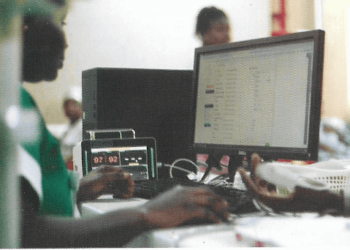US President, Donald Trump has authorised sanctions against the International Criminal Court (ICC) and its employees, as he signed an executive order accusing it of “malign conduct” over its pursuit of charges against Israeli officials.
The measures include freezing the US assets of those sanctioned and banning them or their families from entering the country.
This repeats action he took during his first term.
Trump’s first administration slapped sanctions on the Hague-based ICC for probing alleged US war crimes in Afghanistan, which Joe Biden later lifted.
As the ICC seeks accountability for war crimes committed during the Israel-Hamas conflict, this action signals the dangerous path America treads when it prioritizes political allegiances over global human rights standards.
In November, 2024, the ICC issued arrest warrants for Israeli Prime Minister, Benjamin Netanyahu and his former Defence Minister, Yoav Gallant over the country’s war on Gaza.
The pair were accused of “crimes against humanity and war crimes committed from at least 8 October 2023 until at least 20 May 2024.”
According to the court, there are “reasonable grounds” to believe that Gallant and Netanyahu “intentionally and knowingly deprived the civilian population in Gaza of objects indispensable to their survival, including food, water, and medicine and medical supplies, as well as fuel and electricity.”
Netanyahu’s office rejected the warrants, calling them “absurd and false actions levelled against it by ICC”, adding that Israel won’t “give in to pressure” in the defence of its citizens.
Following President Trump’s decision to impose sanctions on the International Criminal Court (ICC) and its staff, a growing number of countries, rights groups, and international bodies expressed alarm.
By re-imposing these sanctions, Trump is not only disregarding the ICC’s role in promoting justice but also sending a message that alliances with countries like Israel trump the pursuit of justice for the victims of war crimes.
The Netherlands said that it “regrets” that the US has taken the step. The Netherland’s Foreign Minister, Caspar Veldkamp, described the court’s work as “essential in the fight against impunity.”
“The Netherlands actively contributes to strengthening the international legal order and multilateral cooperation and will, in good faith, fulfil binding international law and treaty obligations.”
Caspar Veldkamp
Amnesty International’s Secretary-General, Agnes Callamard also condemned the decision, describing Trump’s order as a “reckless”, “vindictive” and “aggressive”, saying that it undermines the court’s “independent pursuit of international justice.”
“Governments around the world and regional organisations must do everything in their power to mitigate and block the effect of President Trump’s sanctions. Through collective and concerted actions, ICC member states can protect the Court and its staff. Urgent action is needed, like never before.”
Agnes Callamard
In a post on X, European Council President, Antonio Costa, said the sanctions “threaten the Court’s independence and undermines the international criminal justice system as a whole.”
Netanyahu Hails Sanctions On ICC
Israeli Prime Minister, Benjamin Netanyahu welcomed President Trump’s executive order imposing sanctions on the International Criminal Court (ICC) and its staff.
Netanyahu said in posts on X, “Thank you, President Trump, for your bold ICC Executive Order.”
He added that Trump’s decision will defend America and Israel from the “anti-American and anti-Semitic corrupt court that has no jurisdiction or basis to engage in lawfare against us.”
“The ICC waged a ruthless campaign against Israel as a trial run for action against America. President Trump’s Executive Order protects the sovereignty of both countries and its brave soldiers. Thank you, President Trump.”
Benjamin Netanyahu
READ ALSO: Global Aid System Under Siege: Bright Simons Urges Paradigm Shift




















